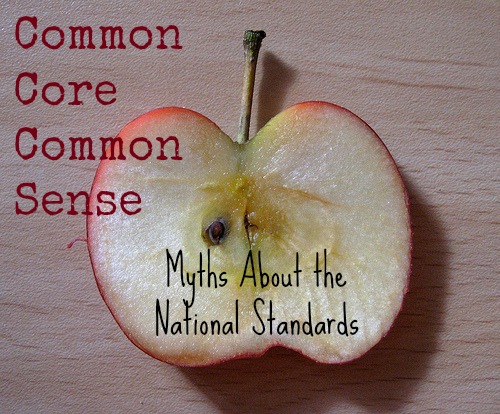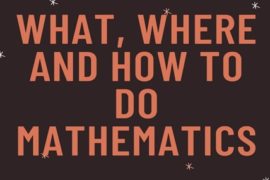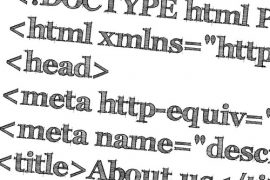In recent months, there’s been a tremendous amount of buzz regarding an educational change called Common Core. And a ton of that buzz perpetuates down-right false information. There’s so much to say about this that I’ve developed a five-part series debunking these myths — or outright lies, if you’re being cynical. This is the third in that series (read Myth 1 and Myth 2), which will continue on Wednesdays throughout August and into September. Of course, I’ll be writing from a math perspective. Photo Credit: Watt_Dabney via Compfight cc
Myth #3: The Standards Introduce Algebra Too Late
One of the reasons for Common Core is to be sure that when students graduate from high school they are ready for college and/or the job market. And these days that means having some advanced math skills under their belts. But if you read the Common Core course headings, algebra is not mentioned until high school.
Up to this point, the math is referred to by the grade level, not subject(s) covered. So at first glance, this looks suspiciously like there is no mention of algebra in middle school. You have to dig a little deeper to learn that tough algebraic concepts are covered in the middle school standards. In fact, algebra is introduced (in an extremely conceptual way, with no mention of the word algebra) in kindergarten!
The Common Core math standards are divided into domains — or mathematical concepts. Here is the full list:
- Counting & Cardinality
- Operations & Algebraic Thinking
- Number & Operations in Base Ten
- Number & Operations — Fractions
- Measurement & Data
- Geometry
- Ratios & Proportional Relationships
- The Number System
- Expressions & Equations
- Functions
- Statistics & Probability
Of this list, you can find algebraic ideas and skills in at least four domains: Operations & Algebraic Thinking, Ratios & Proportional Relationships, Expressions & Equations and Functions. (You can argue that algebra appears in others as well.) In kindergarten, students are introduced to the idea of an equation, like this: 3 + 2 = 5. They also answer questions like this: What number can you add to 9 to get 10? (Algebraically speaking this question is x + 9 = 10, what is x?)
Variables aren’t introduced until much later, in 6th grade, when students are expected to “write, read, and evaluate expressions in which letters stand for numbers.” At this point, students begin to learn the language of algebra, with vocabulary words like coefficient (in the expression 3x, 3 is the coefficient) and term (in the expression 3x – 6, 3x and 6 are terms). Also in 6th grade, they start solving simple equations and inequalities, like 4 + x = 7 and 5x = 15.
In 8th grade, radicals and exponents are introduced, and students learn to solve simple equations with these operations. In addition, they graph lines and put equations into point-slope form and slope-intercept form, and begin solving systems of equations (pairs of equations with two variables). They also make connections between an equation of a line and the graph of a line. Finally, functions are introduced in 8th grade.
All of that happens well before high school, leaving lots of time in high school to delve into polynomials, quadratic equations and conic sections.
But here’s the most important thing: under Common Core, students are given a tremendous amount of context for all of this math, as well as time to develop true numeracy. This can speed along algebraic understanding. For example, students who are fluent with multiples and factors of whole numbers and decimals will have a much easier time learning how to solve equations by factoring. That’s because they will have the foundation of factoring or expanding. They will be able to use the distributive property with ease and focus their attention on the new concepts being presented.
In other words, this slow build develops numeracy.
So don’t let the Common Core headings fool you. Algebraic concepts and skills are meted out throughout the grade levels, allowing students to truly understand foundational concepts and fluently perform basic algebraic skills well before high school begins.
Got a question about the Common Core Standards for Mathematics? Please ask! Disagree with my assessment above? Share it! And if you missed Myth #1 or Myth #2, you can find the here and here.








Comments are closed.